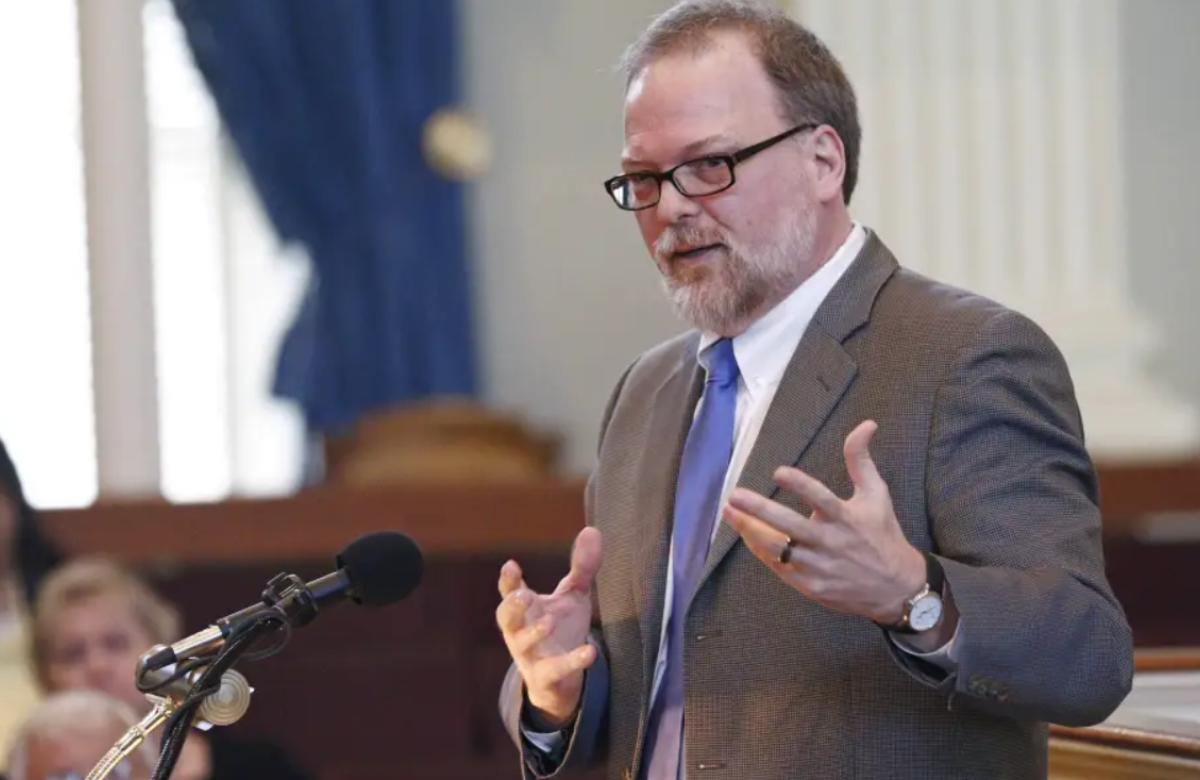Brad Schimel, the Republican-backed candidate in Wisconsin’s highly scrutinized state Supreme Court race, has raised long-debunked concerns about potential voter fraud, focusing on the late reporting of ballots in Milwaukee just two weeks before the April 1 election.
Schimel, a former Republican attorney general, mentioned the possibility of “bags of ballots” and fraud during an interview on conservative talk radio. He is competing against Democratic-backed Susan Crawford in the upcoming election, which could determine majority control of the Wisconsin Supreme Court.
During his interview on WISN-AM, Schimel urged his supporters to “bank our votes” and make the outcome “too big to rig,” so that they wouldn’t have to worry about late ballot findings in Milwaukee. He referred to incidents in 2018 and the previous November, when he claimed that U.S. Senate candidate Eric Hovde was leading all night, only for Milwaukee County to shift the result later in the evening.
Both Republicans and Democrats, along with election officials in Milwaukee and the state, had cautioned ahead of the November election that absentee ballots from Milwaukee would likely be reported late, leading to a surge in Democratic votes. Milwaukee, the most populous city in the state, is known for its strong Democratic leanings. The city’s chief elections official was selected with support from both parties.
The late reporting of absentee ballots in Milwaukee played a significant role in securing the 2020 presidential election for Democrat Joe Biden, which led to unfounded claims that the election had been stolen from President Donald Trump.
Milwaukee’s absentee ballots are counted at a central location and reported all at once, often after midnight on election day. Election officials have explained for years that the delayed reporting is due to the large volume of ballots and state laws that prevent processing them before polls open.
A bipartisan bill aimed at allowing absentee ballot processing before election day failed to pass in the Republican-controlled Senate last year. Although Republicans have controlled the Legislature since 2011 and often criticize the slow processing of ballots in Milwaukee, they have not enacted legislation to speed up the counting process.
In the 2018 election, the late reporting of over 47,000 absentee ballots after midnight helped Democrat Tony Evers surpass then-Gov. Scott Walker, ultimately leading to Evers’ victory. Walker criticized the delayed reporting, stating it caught him by surprise.
Similarly, in November, U.S. Senate candidate Eric Hovde expressed his shock over the reporting of more than 108,000 ballots in Milwaukee in the early hours following his loss to Democratic Sen. Tammy Baldwin.
During a radio interview, Schimel stated that he wasn’t sure what happened, adding, “I don’t know if there was fraud there. There’s no way for me to know that.” He emphasized the importance of voter turnout, stating that getting more people to the polls was the best way to safeguard against potential fraud.
Later, at the Milwaukee Rotary Club, Schimel explained that he raised concerns about fraud because voters often ask him how to ensure election integrity.
Schimel told voters that the best way to protect their vote from being stolen is simply to cast it, adding, “By following the rules…here’s the best way to make sure your vote isn’t stolen: Go use it.” Despite expressing concerns, he stated, “I will always accept the results of the election.”
Crawford’s spokesperson, Derrick Honeyman, criticized Schimel for promoting conspiracy theories, suggesting he was doing so to please his ally, Elon Musk. Schimel’s campaign has received over $11 million in contributions from groups funded by Musk, while Crawford is supported by billionaire Democrats such as George Soros and Illinois Gov. JB Pritzker.
Schimel’s remarks have also been criticized by the Democracy Defense Project, a bipartisan coalition dedicated to promoting election truth, which includes former Republican Attorney General J.B. Van Hollen. The group pointed out that while there is no evidence of fraud in Milwaukee, the state’s failure to allow early counting of absentee ballots fuels conspiracy theories.
The race comes at a critical time as the Wisconsin Supreme Court is set to hear important cases on issues such as abortion, public sector unions, voting rights, and congressional district boundaries. The court currently holds a 4-3 liberal majority, but with one liberal judge retiring, control of the court is at stake.















